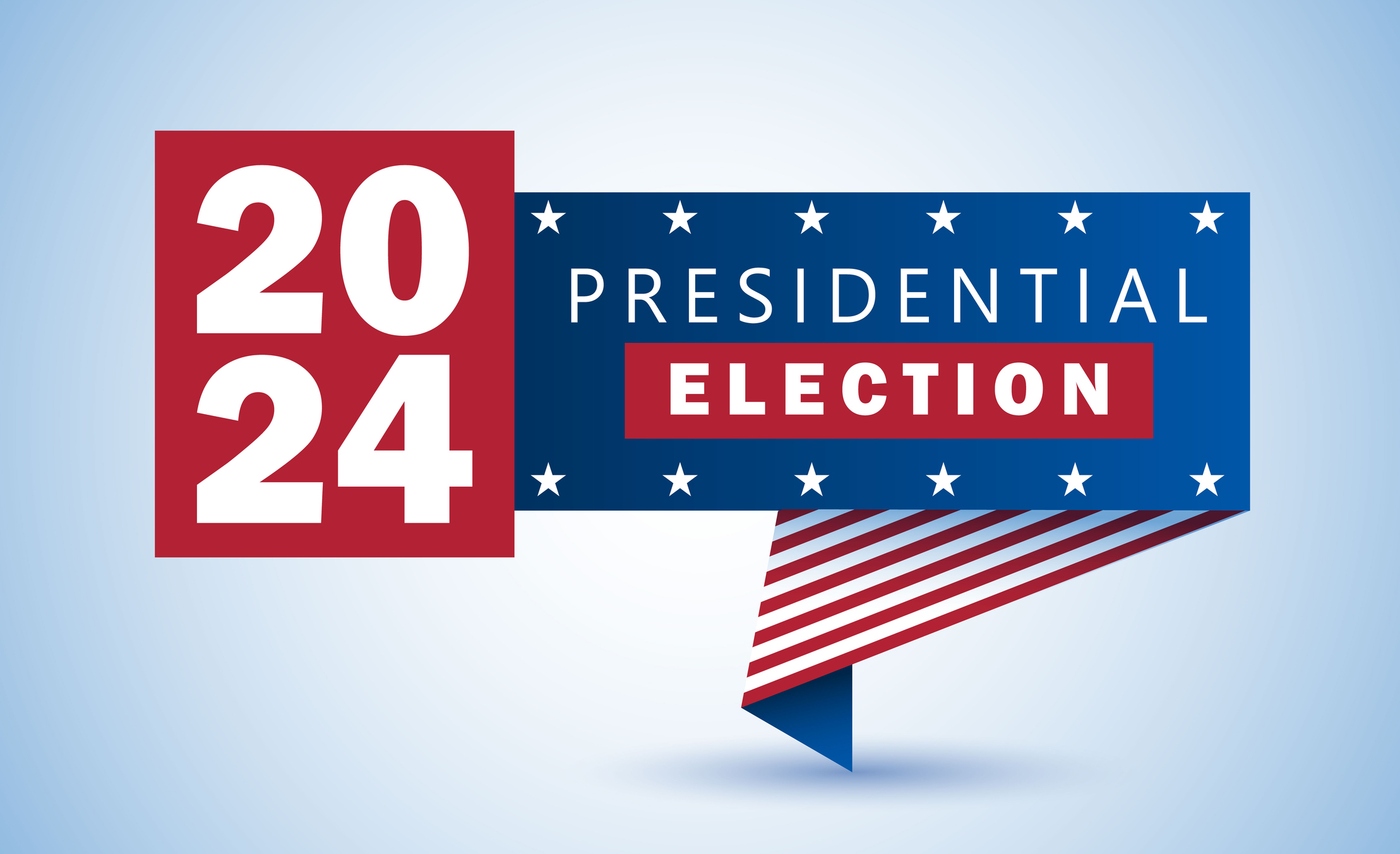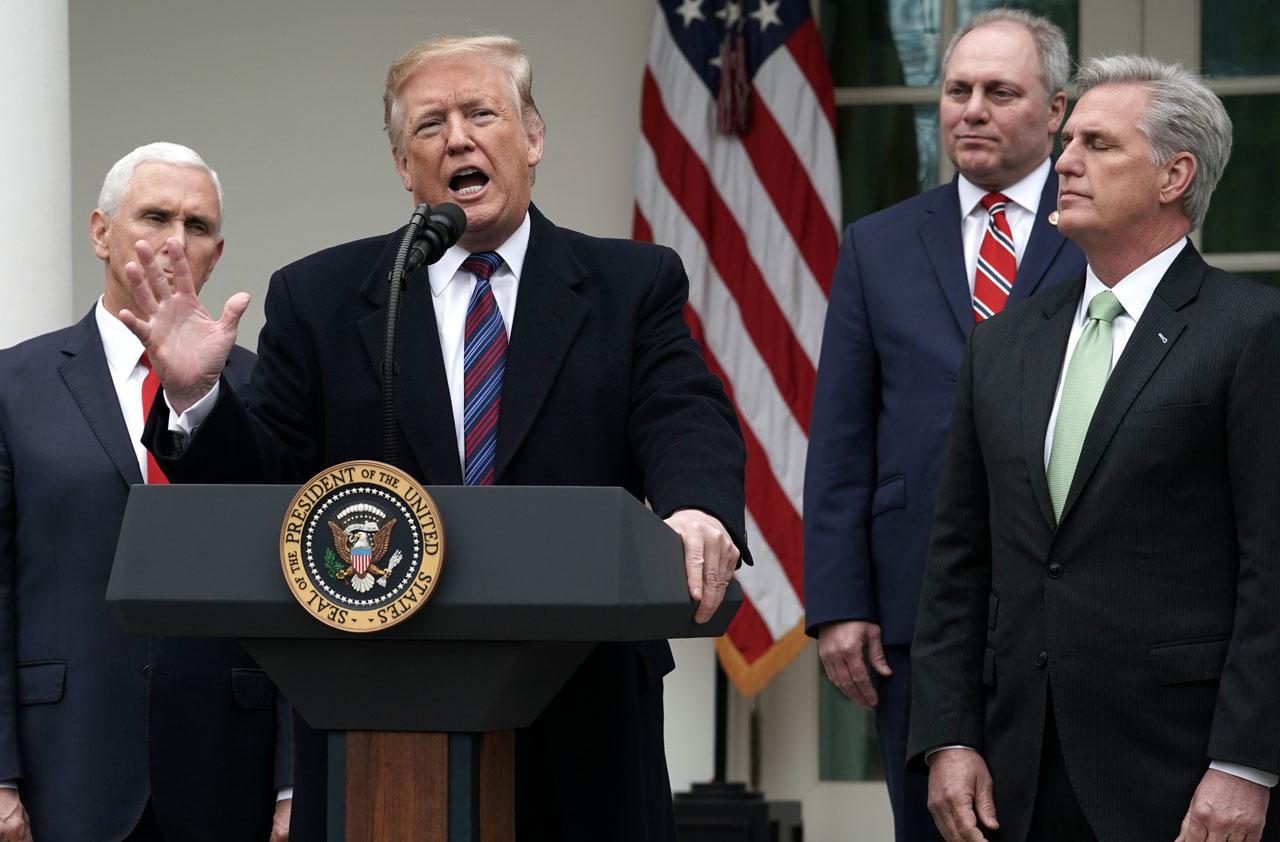The Key Presidential Campaign Issues of 2024
Trump and Harris stake out their positions on trade, immigration, and taxes.


Profit and prosper with the best of Kiplinger's advice on investing, taxes, retirement, personal finance and much more. Delivered daily. Enter your email in the box and click Sign Me Up.
You are now subscribed
Your newsletter sign-up was successful
Want to add more newsletters?

Delivered daily
Kiplinger Today
Profit and prosper with the best of Kiplinger's advice on investing, taxes, retirement, personal finance and much more delivered daily. Smart money moves start here.

Sent five days a week
Kiplinger A Step Ahead
Get practical help to make better financial decisions in your everyday life, from spending to savings on top deals.

Delivered daily
Kiplinger Closing Bell
Get today's biggest financial and investing headlines delivered to your inbox every day the U.S. stock market is open.

Sent twice a week
Kiplinger Adviser Intel
Financial pros across the country share best practices and fresh tactics to preserve and grow your wealth.

Delivered weekly
Kiplinger Tax Tips
Trim your federal and state tax bills with practical tax-planning and tax-cutting strategies.

Sent twice a week
Kiplinger Retirement Tips
Your twice-a-week guide to planning and enjoying a financially secure and richly rewarding retirement

Sent bimonthly.
Kiplinger Adviser Angle
Insights for advisers, wealth managers and other financial professionals.

Sent twice a week
Kiplinger Investing Weekly
Your twice-a-week roundup of promising stocks, funds, companies and industries you should consider, ones you should avoid, and why.

Sent weekly for six weeks
Kiplinger Invest for Retirement
Your step-by-step six-part series on how to invest for retirement, from devising a successful strategy to exactly which investments to choose.
To help you understand what's going on in U.S. politics and the presidential election, and what we expect to happen in the future, our highly experienced Kiplinger Letter team will keep you abreast of the latest developments and forecasts (Get a free issue of The Kiplinger Letter or subscribe). You'll get all the latest news first by subscribing, but we will publish many (but not all) of the forecasts a few days afterward online. Here’s the latest…
As the presidential nominees ready themselves for November their platforms are finally falling into place — a mixture of realistic proposals and lofty promises. Here are the major issues to keep an eye on. Note that these are only forecasts, not endorsements.
With control of Congress likely to be divided between the parties, unless the Republicans can obtain razor-thin majorities in both chambers, expect an emphasis on executive actions.
From just $107.88 $24.99 for Kiplinger Personal Finance
Become a smarter, better informed investor. Subscribe from just $107.88 $24.99, plus get up to 4 Special Issues

Sign up for Kiplinger’s Free Newsletters
Profit and prosper with the best of expert advice on investing, taxes, retirement, personal finance and more - straight to your e-mail.
Profit and prosper with the best of expert advice - straight to your e-mail.
Trade
Donald Trump wants to increase tariffs across the board, but especially on Chinese imports, expanding on the duties he imposed as president. The trade proposal he has touted most often: A 10% global tariff, plus a 60% one for China. Experts think Trump might be able to skirt Congress with the International Emergency Economic Powers Act, which gives the president sweeping control over trade and other transactions after declaring an emergency. Otherwise, he’ll need to either limit the tariffs’ scope or hope he has enough votes in Congress for them.
Kamala Harris would maintain the tariffs imposed by Trump and continued under President Biden, a sign of how much Trump has shifted the consensus on this issue. But she would not aggressively expand them, instead opting for more targeted restrictions on goods seen as potentially threatening to domestic industries, similar to ones recently imposed on Chinese electric vehicles.
Immigration
Another issue where the president has a lot of ability to act unilaterally is immigration.
Trump has promised to undertake a mass deportation effort targeting up to 20 million undocumented people in the U.S. The question is, will he? Expect the former president to test the legal limits of his authority if elected this fall. His first-term deportation efforts often ran aground in court, and this plan would require an even bigger undertaking: Detention centers and troop mobilization.
By contrast, Harris’s immigration ambitions would depend a lot on Congress. She continues to push for the bipartisan Senate legislation that failed this spring, which would allow Uncle Sam to hire more immigration judges and asylum officers, among other things, in exchange for tougher limits on who can be granted asylum.
Taxes
Odds are provisions of the 2017 tax bill expiring in 2025 will be extended in some form, no matter who is elected president, but with some notable variations. Among the tax law provisions set to expire next year:
- The higher standard deduction.
- Lower personal tax rates.
- A state and local tax deduction cap.
- A higher child tax credit.
A big area of difference between Trump and Harris: The corporate tax rate. Trump wants to lower it even further from the current 21%, whereas Harris wants to up it to 28%. Both also have many other priorities that require sway in Congress.
This forecast first appeared in The Kiplinger Letter, which has been running since 1923 and is a collection of concise weekly forecasts on business and economic trends, as well as what to expect from Washington, to help you understand what’s coming up to make the most of your investments and your money. Subscribe to The Kiplinger Letter.
Related stories
- A Look at Donald Trump's Tax Plans Ahead of the Election
- A Look at Kamala Harris's Tax Plans Ahead of the Election
- Trump's Stances on Social Security and Medicare
- Harris' Stances on Social Security and Medicare
- The Presidential Race is Close So Far
Profit and prosper with the best of Kiplinger's advice on investing, taxes, retirement, personal finance and much more. Delivered daily. Enter your email in the box and click Sign Me Up.

-
 Nasdaq Leads a Rocky Risk-On Rally: Stock Market Today
Nasdaq Leads a Rocky Risk-On Rally: Stock Market TodayAnother worrying bout of late-session weakness couldn't take down the main equity indexes on Wednesday.
-
 Quiz: Do You Know How to Avoid the "Medigap Trap?"
Quiz: Do You Know How to Avoid the "Medigap Trap?"Quiz Test your basic knowledge of the "Medigap Trap" in our quick quiz.
-
 5 Top Tax-Efficient Mutual Funds for Smarter Investing
5 Top Tax-Efficient Mutual Funds for Smarter InvestingMutual funds are many things, but "tax-friendly" usually isn't one of them. These are the exceptions.
-
 Trump $10B IRS Lawsuit Hits an Already Chaotic 2026 Tax Season
Trump $10B IRS Lawsuit Hits an Already Chaotic 2026 Tax SeasonTax Law A new Trump lawsuit and warnings from a tax-industry watchdog point to an IRS under strain, just as millions of taxpayers begin filing their 2025 returns.
-
 The New Fed Chair Was Announced: What You Need to Know
The New Fed Chair Was Announced: What You Need to KnowPresident Donald Trump announced Kevin Warsh as his selection for the next chair of the Federal Reserve, who will replace Jerome Powell.
-
 Trump Reshapes Foreign Policy
Trump Reshapes Foreign PolicyThe Kiplinger Letter The President starts the new year by putting allies and adversaries on notice.
-
 Congress Set for Busy Winter
Congress Set for Busy WinterThe Kiplinger Letter The Letter editors review the bills Congress will decide on this year. The government funding bill is paramount, but other issues vie for lawmakers’ attention.
-
 The December CPI Report Is Out. Here's What It Means for the Fed's Next Move
The December CPI Report Is Out. Here's What It Means for the Fed's Next MoveThe December CPI report came in lighter than expected, but housing costs remain an overhang.
-
 The Kiplinger Letter's 10 Forecasts for 2026
The Kiplinger Letter's 10 Forecasts for 2026The Kiplinger Letter Here are some of the biggest events and trends in economics, politics and tech that will shape the new year.
-
 Special Report: The Future of American Politics
Special Report: The Future of American PoliticsThe Kiplinger Letter Kiplinger assesses the political trends and challenges that will define the next decade.
-
 The November CPI Report Is Out. Here's What It Means for Rising Prices
The November CPI Report Is Out. Here's What It Means for Rising PricesThe November CPI report came in lighter than expected, but the delayed data give an incomplete picture of inflation, say economists.